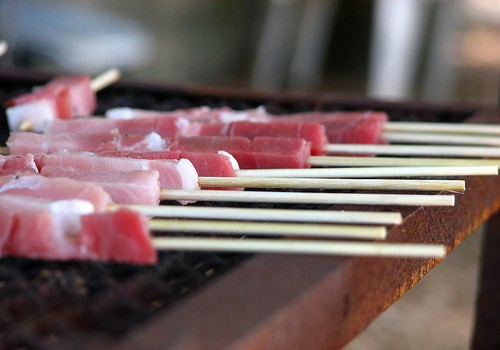
Raw Or Undercooked Meat, Poultry, Fish, Or Eggs
Pregnancy places a woman at an increased risk of bacterial food poisoning, and this can affect the baby in some cases too. You don't want to get a listeria or salmonella infection while you are expecting. Avoid raw meat, fish and eggs altogether. Make sure that you use a food thermometer at home, and steer clear of dodgy street stalls and fast food outlets. Eggs are safe as long as they are well-cooked — the egg whites should be firm and white. Be careful with pre-stuffed raw chicken, because the mix of juice and stuffing can be a breeding ground for bacteria.
- Important notification about information and brand names used in this slideshow!
- Photo courtesy of Conan by Flickr : www.flickr.com/photos/conanil/5888555119/
- www.dummies.com/how-to/content/foods-and-beverages-to-watch-out-for-during-pregna.html
- http://www.mayoclinic.com/health/pregnancy-nutrition/PR00109
- http://www.nhs.uk/chq/Pages/917.aspx?CategoryID=54#close
- http://americanpregnancy.org/pregnancyhealth/foodstoavoid.html
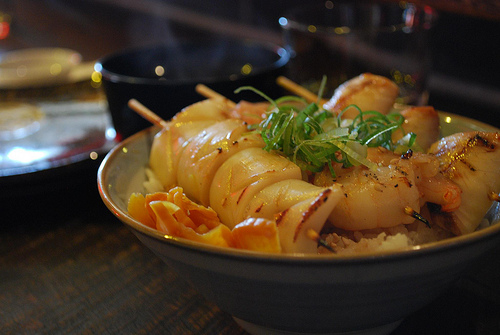
Seafood High In Mercury
Fish is a really healthy food that gives you omega-3 fatty acids and plenty of proteins. But beware — many fish contain dangerously high mercury levels. The US Environmental Protection Agency recommends that pregnant women avoid swordfish, tilefish, King mackerel and shark. There are also some concerns over canned tuna, so limit your intake to a maximum of 12 ounces a week. Safe fish include cod, pollock, salmon and tilapia. You can also choose crab and shrimp. Any fish that you consume should be cooked properly to avoid bacterial food poisoning, however — pregnant women should not eat sushi prepared with raw fish.
- Important notification about information and brand names used in this slideshow!
- Photo courtesy of Alpha by Flickr : www.flickr.com/photos/avlxyz/4340669958/
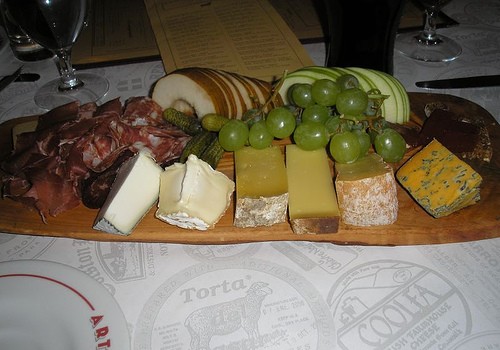
Unpasteurized Foods
Dairy products are a fantastic source of calcium for anyone, including pregnant women. Milk, cheese, yogurt, and cream are all safe for pregnant women, as long as they are not unpasteurized. It is actually pretty hard to find unpasteurized dairy products at grocery stores these days, but you still want to be careful with certain soft cheese. Brie, Camembert, and blue cheeses are probably not pasteurized unless the package clearly states that they are. Pregnant women should also be careful with buying dairy products from local farmers' markets — a farmer's milk or cheese is quite likely to be unpasteurized.
- Important notification about information and brand names used in this slideshow!
- Photo courtesy of Nikchick by Flickr : www.flickr.com/photos/nikchick/405136552/
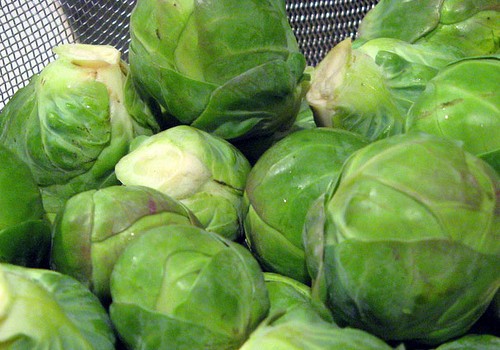
Raw Sprouts
Most pregnant women already know that they should stay away from raw fish and meat and unpasteurized dairy products. It's quite possible you didn't know that raw sprouts are also suspect foods. You may love alfafa, radish and mung bean sprouts, but we have a disappointing message for you: the Food and Drug Administration advises everyone (pregnant or not) to stay away from uncooked sprouts. Apparently, bacteria that get into these raw sprouts are almost impossible to wash out, no matter how thorough they are. You can still include these sprouts in stir fries — they'll be tasty and a whole lot safer.
- Important notification about information and brand names used in this slideshow!
- Photo courtesy of Maggie Hoffman by Flickr : www.flickr.com/photos/maggiejane/3041210278/
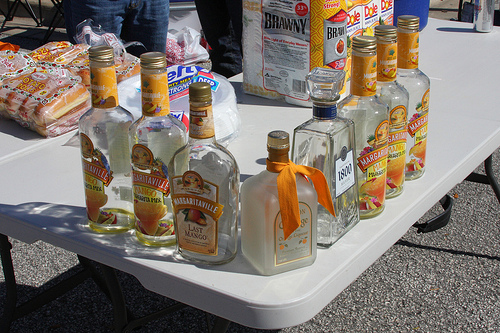
Alcohol
You already knew that drinking large amounts of alcohol during pregnancy was a bad idea, but you might think that a glass of wine every once in a while can't possibly do any harm. Just remember that no amount of alcohol has been proven safe during pregnancy, and that the safest amount of alcohol is no alcohol at all. One study of nearly 1,000 pregnant women found 25 percent increase in the risk of having a baby with a cleft palate for every drink a mother had between 43 and 84 of their pregnancies. The risk of a low birth weight baby increased 16-fold with every drink during this same period. Fetal Alcohol Syndrome causes all kinds of physical and mental disabilities, and it is a very real possibility for babies whose mothers regularly drink during pregnancy.
- Important notification about information and brand names used in this slideshow!
- Photo courtesy of Sam Howzit by Flickr : www.flickr.com/photos/aloha75/4396649468/
- www.trying-to-conceive.com/pregnancy-birth/pregnancy/even-small-amounts-of-alcohol-risky-during-pregnancy/
- http://www2.potsdam.edu/hansondj/FetalAlcoholSyndrome.html#.Ukhv24bPUwk
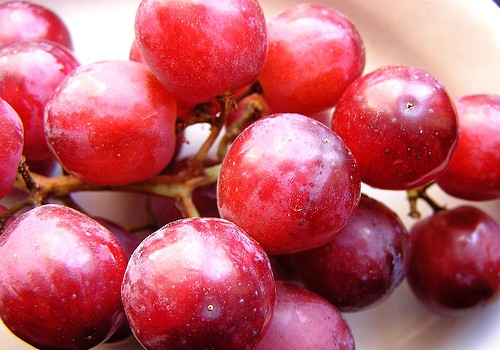
Unwashed Fruits And Vegetables
Unwashed, raw fruits and vegetables can contain all kinds of harmful bacteria. Resist the temptation to pop those beautiful grapes in your mouth without washing them — give all the fresh produce you bring into your home a thorough wash before consuming it. Raw sprouts are in a special category: the Food and Drug Administration found that it is practically impossible to get rid of bacteria found in raw sprouts by washing them. If you love sprouts, cook or fry them before you eat them. Cooking is always a great choice if you want to make sure to eliminate bacteria.
- Important notification about information and brand names used in this slideshow!
- Photo courtesy of liz west by Flickr : www.flickr.com/photos/calliope/105360353/
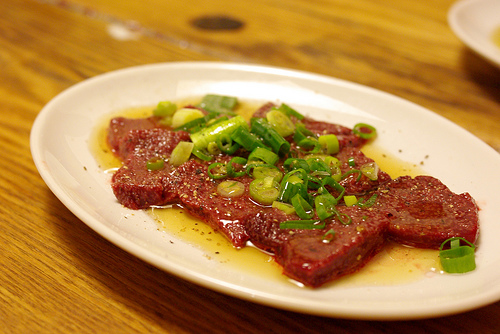
Beef Or Chicken Liver
Liver is a great source of folic acid, iron and vitamin A — so why is it not recommended during pregnancy? It's the vitamin A that causes concerns. Too much vitamin A can be dangerous to the point that it can cause birth defects, some studies suggest. The recommended daily amount is 2,565 international units a day for pregnant women, and you should not exceed this. It is hard to be deficient in vitamin A because the body can make its own vitamin A from other sources, such as beta carotene. Liver contains a really high amount of vitamin A. Beef liver has 27,000 IUs per three-ounce serving, while chicken liver has 12,000 IUs of vitamin A.
- Important notification about information and brand names used in this slideshow!
- Photo courtesy of Ryuta Ishimoto by Flickr : www.flickr.com/photos/ryumu/3054711039/
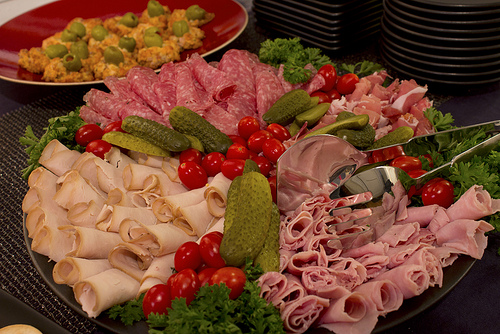
Deli Meats
Deli meats can be contaminated with listeria, a bacteria that can cause a nasty infection in anyone. The bacteria can even cause blood poisoning. If you are pregnant, listeria can cross the placenta and lead to miscarriage. This is not really a risk you want to take, and it's reason enough to stay well away from deli meat. If you really want to eat deli meat, make sure that you do not consume cold cuts. Cook all your meat thoroughly, until it is steaming, to eliminate listeria from it.
- Important notification about information and brand names used in this slideshow!
- Photo courtesy of Dinner Series by Flickr : www.flickr.com/photos/dinnerseries/6286049371/
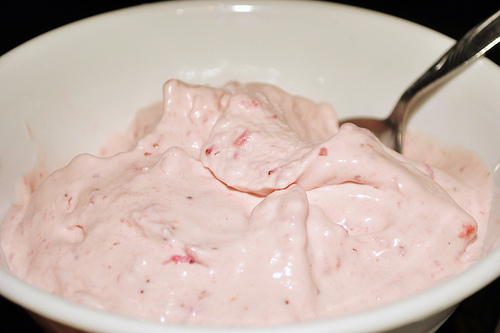
Homemade Ice Cream And Other Goodies Containing Raw Eggs
Raw eggs are a key ingredient in many really delicious things, including home-made mayonnaise, ice cream, and meringue. Those things may be really hard to give up, especially during pregnancy when you will have all kinds of cravings. One word should be enough to convince you that goodies that contain raw or undercooked eggs are just not worth it when you have a baby on board: salmonella. Salmonellosis is a type of food poisoning caused by salmonella bacteria. Besides nausea, vomiting, fever, a headache, and overall misery, salmonellosis can be life-threatening for you and your unborn baby. Well-cooked eggs with firm egg whites are safe, though, so you don't have to give up eggs altogether.
- Important notification about information and brand names used in this slideshow!
- Photo courtesy of jeffreyw by Flickr : www.flickr.com/photos/jeffreyww/5042573615/

Caffeine
If you think you can't make it through the day without a cut of coffee or two, or perhaps three, just remember that caffeine can actually cross the placenta and influence the baby's heart rate too. Drinking coffee in moderation is acceptable, but make sure you don't consume more than 200 mg a day, because some studies suggest more caffeine is linked to miscarriage. That's about two cups of normal, not-too-strong, coffee. Don't assume you will definitely drink those cups though, because many expectant mothers suddenly feel sick when they drink or even smell coffee. Perhaps it's the body's way of making sure you don't over-caffeinate your baby?
- Important notification about information and brand names used in this slideshow!
- Photo courtesy of whatleydude by Flickr : www.flickr.com/photos/whatleydude/7738878050/






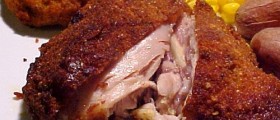
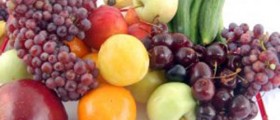
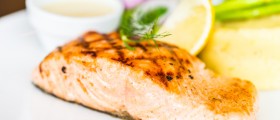
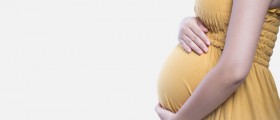



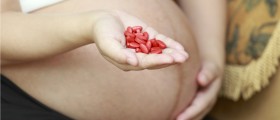
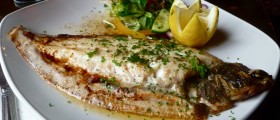
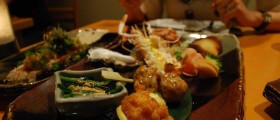


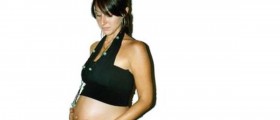

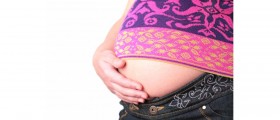
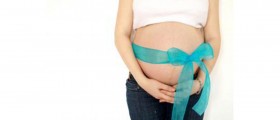

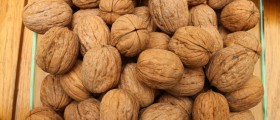
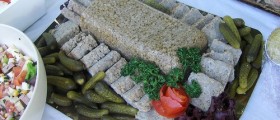

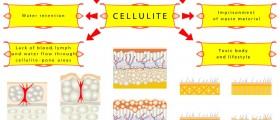
Your thoughts on this
Loading...